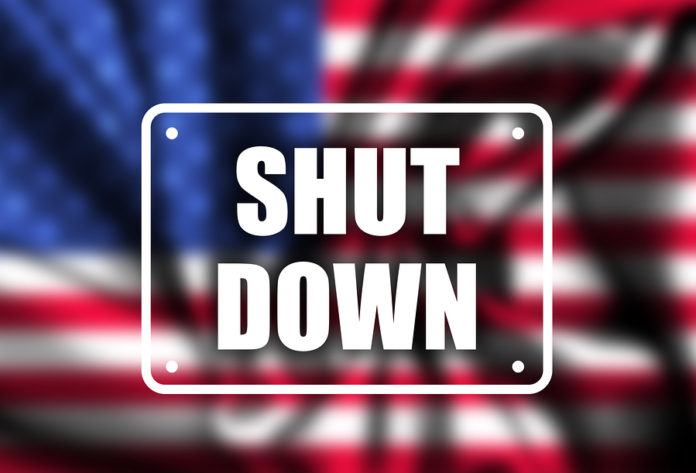
We’re now on day 25 of the longest government shutdown in U.S. history, and the food and beverage industry is feeling the strain. And with the current gridlock in Washington, there’s no end in sight for the government shutdown.
Let’s take a look at how the events that have unfolded so far are impacting the food and beverage industry.
FDA inspections
About 40% of the FDA’s workforce is on furlough. Without these resources available, food safety inspections came to a halt when the government shut down over three weeks ago.
Earlier this week, FDA commissioner Scott Gottlieb announced that some workers at the FDA will return from furlough — albeit unpaid — to conduct inspections for high-risk foods including soft cheeses, seafood, custard-filled bakery products, some fruits and vegetables, and baby formula.
Gottlieb spoke to the dedication of industry workers in the midst of the record-breaking shutdown. “I can’t tell you that they are not feeling personal hardship, but they are dedicated and want to come back.” He offered more details in a series of Tweets from the last couple of days.
UPDATE ON FOOD INSPECTIONS AND OTHER INSPECTION ACTIVITY: The response from our outstanding field force and inspectorate has been overwhelming and outstanding. They’re among the finest, most dedicated professionals in our federal workforce and we’re grateful for their service ->
— Scott Gottlieb, M.D. (@SGottliebFDA) January 14, 2019
This work is being done by an inspectorate that’s largely going unpaid. These men and women are the tip of the spear in our consumer protection mission. They’re the very front line. And they’re on the job. The entire nation owes them gratitude. I’m inspired by their dedication.
— Scott Gottlieb, M.D. (@SGottliebFDA) January 14, 2019
It’s worth noting that although the FDA oversees the safety of most of the country’s food supply, the USDA’s Food Safety and Inspection Services handles meat, poultry, and some egg products. Since these sensitive inspections are required by law, inspectors are still on the job at the USDA, but without pay.
Food stamps
When the government shut down, the impact on the Supplemental Nutrition Assistance Program (SNAP, or food stamps) was unclear. But as the stalemate in Washington wore on, reality started to sink in — for the first time ever, a government shutdown could hinder the SNAP program.
The consequences of letting SNAP resources run out could be dire. Diane Whitmore Schanzenbach, director of Northwestern University’s Institute for Policy Research, noted, “We just can’t be gambling with these resources. It provides a fundamentally important part of a family’s budget when families fall on hard times.”
To help mitigate the social and economic risks of a deflated SNAP program, the USDA gained the authority to keep paying benefits until January 20. Although it’s a short-term plan, the USDA is taking full advantage of the payout window by issuing February benefits to states early. The agency has the process down pat, as it’s similar to what happens when major hurricanes hit the states.
Farming
There’s no ideal timing for a government shutdown, but the timing is particularly bad for farmers. The U.S. – China trade war put an enormous strain on the agriculture industry, with Chinese tariffs driving down the price of crops.
Some farmers took out what’s called “revenue crop insurance” to help make up for the money lost because of the new duties, which was supposed to be paid out by the end of this month. But with government employees on furlough, farmers likely won’t be receiving these critical funds on time. The deadline for farmers hurt by the trade war to apply for aid will be extended by the number of days the shutdown keeps the USDA closed. Despite some of these setbacks, USDA Secretary Sonny Perdue announced today that some employees will return to work for three days to help farmers with existing loans and tax paperwork.
The impact of the shutdown on farmers and the agriculture industry extends much further than the financial aid. Without access to resources that are critical to planning what, how much, and when to plant crops, farmers are at a decision-making standstill. Plus, the USDA can’t implement programs that were greenlit with the Farm Bill until the shutdown ends.
Alcoholic beverage industry
The beverage industry hasn’t escaped the shutdown unscathed, either. With the U.S. Department of the Treasury Alcohol and Tobacco Tax and Trade Bureau (TTB) closed, alcohol bottle and can labels aren’t being pushed through review. That means that new beer, wine, and liquor product labels can’t be federally approved. Consequently, they can’t be sold across state lines. Also, if an alcoholic beverage contains unique ingredients (for example, a winery that uses more than just grapes), the formulas for new products need to be federally approved before going to market.
Then there are the financial implications of the shutdown. For example, during a government shutdown, a brewery applying for a loan through a bank or credit union probably won’t be able to retrieve the necessary information from the federal government to process a loan.
Unlike other agency workers, TTB workers have been directed not to show up to work, even for volunteer tasks.







